Bachelor degrees are the backbone of higher education, as they provide the academic basis for graduate degree programs, and ensure safe, professional prospects for graduates. There are many options to choose a bachelors degree program, and a little research can go a long way in finding the best bachelors degree program for you.
![]()
Throughout the 20th century and into the 21st, bachelor’s degrees have become expected and often required credentials for most professional career paths. Finding the degree program that will jumpstart your career is a life-changing event that will help you reach your full potential.
So you want to earn a bachelor’s degree, but you don’t know where to start. There are a wide variety of options for bachelor degree programs that can make searching for a good school overwhelming. Fortunately, checking out the resources that we have compiled here at DegreeQuery.com is a great place to start. However, before you jump in and start researching schools you should consider your own academic and professional priorities, including:

- Expected Cost: Bachelor degrees can vary greatly in their financial burden, as they can be free, or cost upwards of $100,000. If you want to ensure that you will receive a quick return on your investment, looking for a reasonably priced bachelor’s degree is essential.
- Scheduling: Bachelor degrees also require a considerable time investment, and most people do not have four years of their life that they can commit entirely to school. Fortunately, there are a variety of formats that are designed to accommodate working professionals who are looking to earn their bachelor’s degree.
- Skill Building: While a bachelor’s diploma offers credentials, the skills that you build while earning your diploma are the real value. While most bachelor degree programs do not require their students to declare a major until their third year, having an idea of what skills you want to build will help you maximize the utility of your degree program.
- Desired Profession: If there is a particular job or promotion that you are hoping to earn after graduating from your bachelor degree program, then you can tailor your search for schools to those that specialize in your professional field. Many specialized bachelor degree programs provide professional certification exams, as well as networking opportunities.
What’s the best bachelor’s degree for you?
After you have considered what you are looking for in your degree program, you are ready to start your school search. Be as precise about your desired location, tuition range, and intended course of study as you can to find the best bachelor’s degree program for you. While many schools offer a wide range of class options, they often specialize in a particular course of study and have a large number of alumni placed in prestigious professional positions in that field. While you do not have to declare your intended major on your school application, having some options in mind will help you find the best school.
How can you find the best school for your Bachelor’s Degree?
Once you know what you are looking for in a bachelor’s degree program, there are a variety of statistics that are available to help you on your job search. Fortunately, here at Degree Query, we have compiled a wide range of school rankings, frequently asked questions, and other resources for you to consider. While there are many great schools out there that offer educational experiences that meet and exceed standards, more and more for-profit schools are opening that cut corners on their educational services. One thing that you should always look for in the colleges that you apply to is proper accreditation.
What accreditations should my school have?
Accreditation ensures that your school provides degree programs that meet industry standards for quality education. The most common accreditation for bachelor degree programs is from regional or national accreditation bodies. National accreditations usually focus on vocational schools that prepare graduates for a specific career path. National accreditation bodies that are certified by the Council for Higher Education Accreditation (CHEA) include the Distance Education & Training Council (DETC), and the Accrediting Commission of Career Schools and Colleges (ACCSC). Regional accreditation is the most frequent form of accreditation, as the U.S. Department of Education says that more than 85% of colleges and universities in the United States have regional accreditation. There are six major regional accrediting bodies in the United States, which include:
- MSA (Middle States Association of Colleges and Schools)
- NEASC (New England Association of Schools and Colleges)
- NCA (North Central Association of Colleges and Schools)
- NAC (Northwest Accreditation Commission)
- SACS (Southern Association of Colleges and Schools)
- WASC (Western Association of Schools and Colleges)
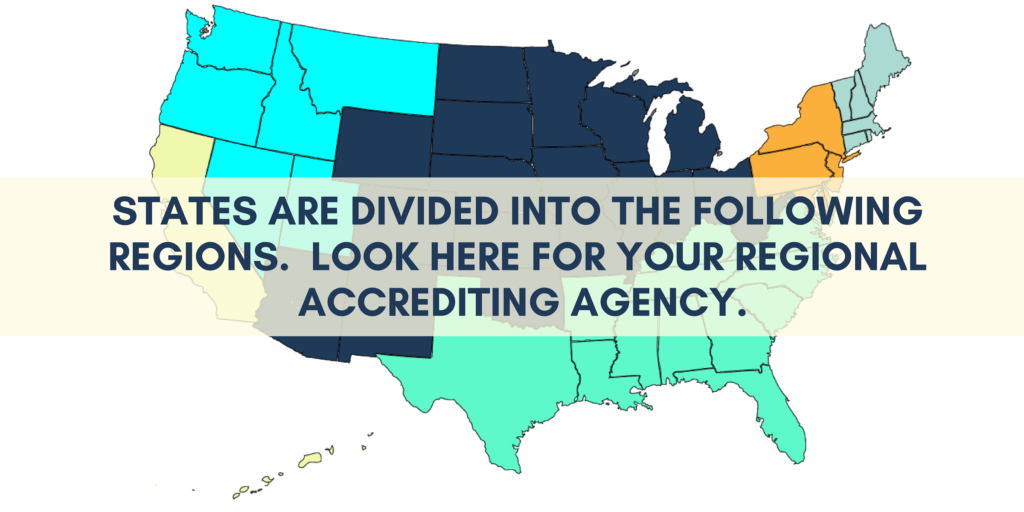
How do you choose a major for your Bachelor’s Degree?
Choosing the major for your bachelor’s degree is one of the most important decisions in your academic career. Knowing what your strengths are, and what field you could see yourself excelling in, will allow you to make a confident decision. Some of the most common majors for bachelor degree students are:
- Biology: If you understand the way that living organisms operate, majoring in biology will provide you with first-hand laboratory and field research experiences. Biology majors often go on to become doctors.
- Business Administration: If you understand market dynamics and are looking to earn money as a leader in business, a bachelor’s in business administration is a great first step. Many graduates go on to earn their MBA (Master’s of Business Administration).
- Communication: If you understand how human’s interact and convey knowledge to each other, a degree in communication can jumpstart your career in marketing or a variety of other fields.
- Computer Science: If you are good with computers and are looking to work in a vastly expanding, highly demanded field, a degree in computer science will give you the coding, software, or hardware skills that you need to succeed.
- Criminal Justice: If you are interested in law and the justice system, a degree in criminal justice is a good bachelor’s degree for students who are looking to become lawyers or an administrative role in the justice system.
- Education: If you are a good communicator and have a passion for learning, teaching can be the most fulfilling profession in the world. A degree in education will give you the skills and credentials to influence and inspire our next generations.
- Psychology: If you understand the way the human mind works, majoring in psychology will prepare you to become a psychologist, social worker, or guidance counselor.
- Nursing: Nursing is one of the safest bachelor degrees as they prepare you for a specific job that is always necessary and in high demand. Saving people’s lives by providing hands-on care is one of the most valuable skills for humanity. There are also many BSN-RN (Bachelors of Science in Nursing to Registered Nurse) degree programs that will prepare you to become a registered nurse after graduating.
Now that you have an idea of what kind of degree you might be searching for, you’re ready to start looking at some program options.

What Resources are Available to Help You find the best Bachelor’s degree program?
Here at Degree Query we have compiled a wide range of resources for your benefit. In our school rankings, you will find some of the schools that offer the top degree programs in a specific field, format, or price range. In our frequently asked questions, we go into further detail about what to expect from a type of degree program. We have many other resources available that can help you find the school that will provide the path to your desired career. If any of the schools that you see in our rankings pique your interest, be sure to follow the links to their website and request more information.
Rankings
Some of our rankings for bachelor degree programs include:
- The 100 Most Affordable Online Colleges and Degrees of 2018
- The Top 25 Tuition-Free Colleges and Universities
- The 50 Highest Paying Bachelor’s Degrees
- The Top 50 Degrees for the Future
- The Top 50 Degrees for Changing the World
Frequently Asked Questions:
Some of our most popular FAQs include:
- Is There Any Math Required for a Degree in Finance?
- What Is the Salary Potential for Someone With an Entrepreneurship Degree?
- Which Degree Do You Need To Become A Doctor?
- What Degree Should I Get To Join The FBI?
- Which Degree Is Best For Investment Banking?
- How Long Does It Take to Become a Psychologist?
- How Long Does It Take to Get an Associate Degree?
Other Resources
- The 50 Most Educated Places in America
- Special Report on the Credibility of Online Degrees
- A Guide on Science Degree Programs
- A Guide on Nursing Degrees
- A Guide on Massage Degrees

How Do You Avoid Student Debt While Earning a Bachelor’s Degree?
Tuition Rates
Degree programs can vary widely in their tuition rates, even among students at the same school. Some of the ways to find schools that will offer you an affordable tuition rate include:
- In-state schools: Many large state schools offer much better tuition rates for in-state students than they do for out-of-state students, regardless of whether they are taking classes on campus or online. Many public state schools offer tuition rates lower than $10,000 per year for in-state students.
- Public colleges and universities: In general, public schools offer more affordable tuition rates than their private counterparts. Public schools often get state and federal tax funding that helps offset the cost of the degree programs.
- Degree program: You should be aware that sometimes different majors will cost different amounts even at the same school. Courses that involve travel, specialized materials or equipment can add unexpected amounts to tuition rates, so be sure to inquire about unexpected fees.
Scholarships
Earning a scholarship is a great way to cut costs on the investment into your bachelor degree program. Some institutions that offer scholarships are:
- Your School: The school that you are attending can offer academic scholarship awards for students who have achieved a level of success in their academic studies. Be sure to inquire about scholarships that are available for your particular degree program at your school, as majors that are for the public good such as social work, teaching, and nursing, often offer great scholarships for students.
- Private Companies: There is a wide range of private companies that offer various scholarships for students who are looking to major in fields that relate to their business. Scholarships are often promotional opportunities and require applicants to submit personal essays, videos, or projects for considerable breaks on tuition.
- Your Job: If you are earning your bachelor’s degree for a specific promotion at the company you currently work for, there is a good chance that they will help you fund a portion of your degree program.
Financial Aid
Students can earn financial aid packages from both their school and the federal government. When making your decision about which school to attend, you should be sure to take into account the specific financial aid package that they are offering you. Be sure to contact their admissions office to inquire about what kind of financial aid you might be eligible for. If you are looking to secure federal financial aid, you will have to fill complete and put in a Free Application for Federal Student Aid (FAFSA).
Types of Loans
In many cases students will have to end paying for some portion of their degree program by taking out a student loan. It will help you to know what type of financial commitment you are making when you sign your student loan contract. There are many different tuition rates and payoff schedules that can make it easy or difficult to pay off your student loans. Types of student loans include:
- Stafford Loans: Stafford loans are student loans from the federal government and they can be subsidized or unsubsidized. Subsidized loans are more desirable as you do not have to pay for them until after you graduate, and the interest that you accrue while in school is paid for by the federal government. They also offer low-interest rates, which can vary from 3-7% annual percentage rate (APR).
- Perkins Loans: A Perkins loan is a federal loan that is based on the financial needs of the student. Perkins loans are always subsidized and are therefore one of the safest student loans available. Perkins loans carry a fixed interest rate of 5% APR.
- Direct PLUS Loans: Direct PLUS Loans are federal loans that are not subsidized, meaning they will accrue interest while the student is enrolled in school. With a fixed interest of 7.6% APR, they are some of the most expensive federal loans, and students who take them out should have a payment strategy that includes making payments while they are in school.
- Private Loans: Private student loans are nonfederal, and are made by lenders such as banks, state agencies, schools, or credit unions. Some common private student loan lenders are Citizens Bank, LendKey, and Sallie Mae. Private loans are generally more expensive than federal loans and can put students in a cycle of debt where they are paying off interest instead of the principal balance. Private loans should only be taken out as a last resort, and students should have a concrete plan in place for how they intend to pay off their loan. Interest on private student loans can reach over 14% APR.
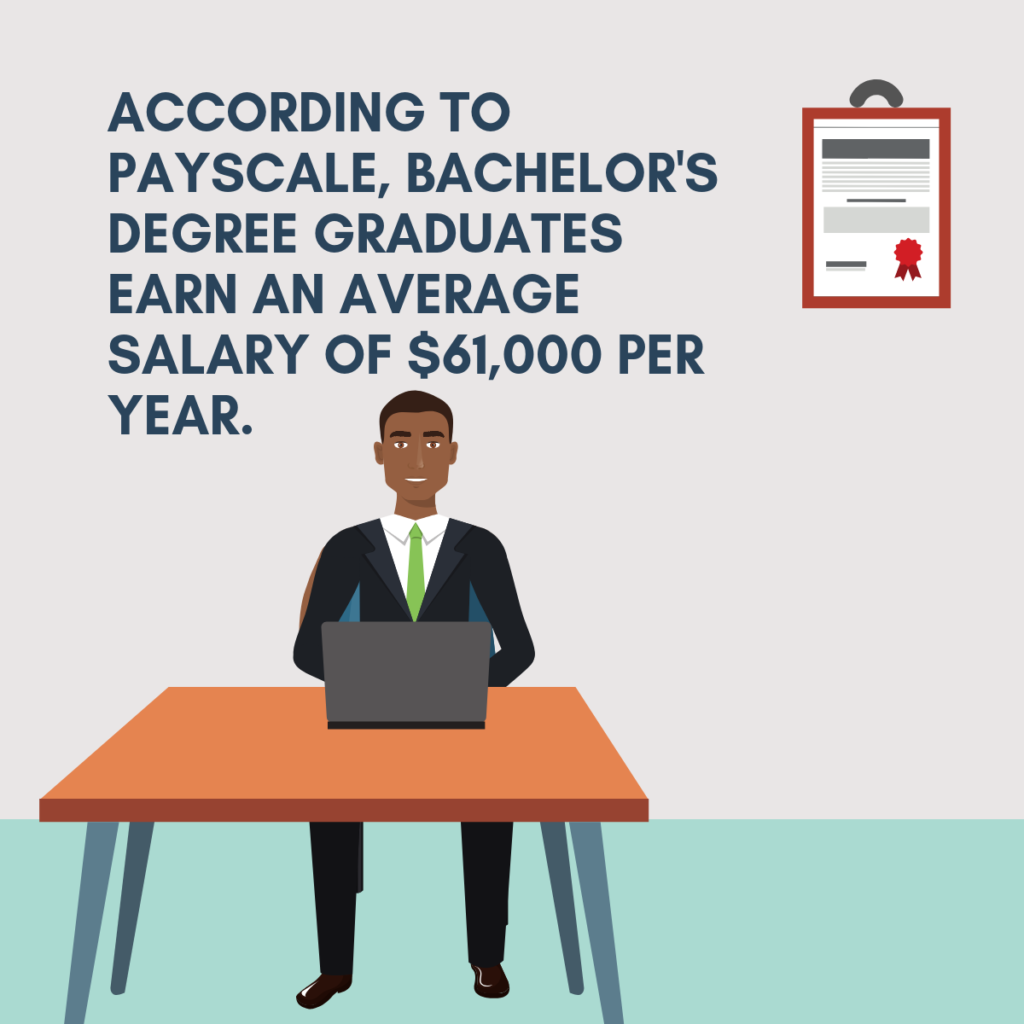
What are the different types of Bachelor’s degrees?
Bachelor of Arts (B.A.)
A Bachelor of Arts degree is awarded to students who have completed all the requirements for their bachelor degree with a major in a field of humanities such as history, English, or sociology. In general, B.A. degree programs provide students with a wide range of academic subjects that are intended to elevate their writing, reading, and critical thinking skills.
Bachelor of Science (B.S.)
A Bachelor of Science degree is awarded to students who have completed all the requirements for their bachelor degree in a field of science such as biology, engineering, or computer science. B.S. degree programs provide students with a specialized knowledge base are excellent for conducting research. There are some subjects, such as psychology, business, and accounting that are offered both as B.S. and B.A. degrees, with the difference being that B.S. degrees require more courses to be taken within the specific major.
Bachelor of Fine Arts (BFA)
A Bachelor of Fine Arts degree is awarded to students who have completed all the requirements for their bachelor degree in an artistic discipline such as painting, graphic design, or fashion design. While BFA’s are stereotyped for their lack of job prospects, skills like graphic design, branding, and communication are highly desirable on the job market.
Bachelor of Applied Science (BAS)
A Bachelor of Applied Science degree is awarded to students who have completed all the requirements for their bachelor degree in a field of technical management such as applied physics, mathematics, or automotive engineering. These are commonly vocational degrees that will place graduates in specific careers by providing them with the knowledge base and proper certification.
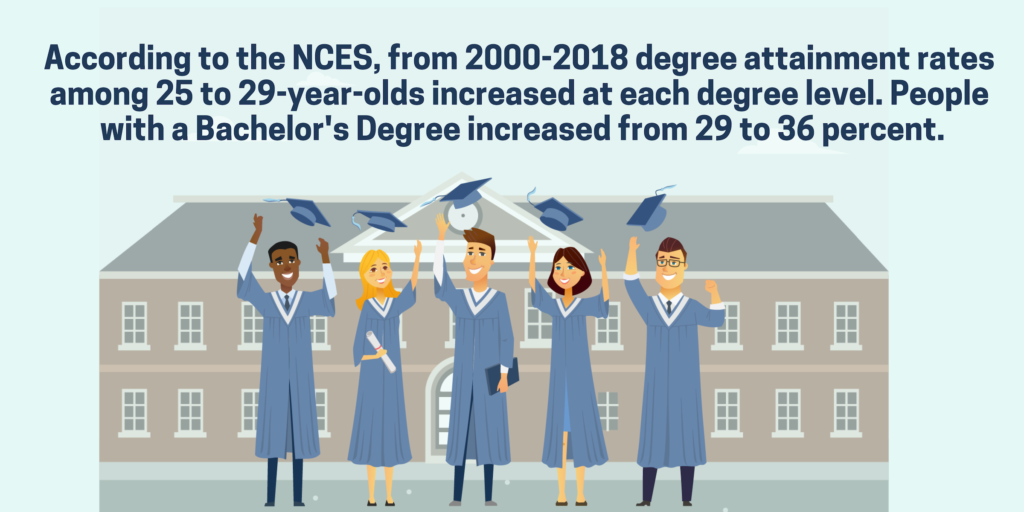
How long does it take to earn a Bachelor’s degree?
Most bachelor degrees require the completion of 120 credit hours. You are awarded a certain amount of credit hours (or just “credits”) for earning a passing grade in each class. The amount of credits that a course is worth depends on the amount of time you spend in that class per week. In a typical college semester, which lasts 15 weeks, a three-credit course will meet three times per week. To be considered a full-time student, which qualifies you for financial aid, you will have to take at least 12 credits per semester. Students should try to average 15 credits per semester so that they graduate in eight semesters or four years. There are also many different formats that are designed to accommodate students with various schedule constraints.
What are the different formats that are offered for Bachelor degree programs?
- On Campus: The traditional college experience which places an emphasis on interactive learning and face-to-face relationships.
- Online: Designed to accommodate the schedules of working professionals who are looking to earn a degree to increase their credentials for a new job or promotion.
- Hybrid: Hybrid formats use a combination of classroom and online courses with the idea that students can take care of requirements with online courses while taking their upper-level courses for their major in a classroom environment.
- Part-Time: Part-time degree programs are meant to accommodate students who have significant time restraints such as a full-time job. However, part-time students should be aware that they are not eligible for the same financial aid packages as full-time students.
- Accelerated: Accelerated degree programs allow students to finish their bachelor’s degree in as little as two years. They do this by either allowing students to take more than 18 credits per semester or by offering courses in 8-week semesters as opposed to 15. Many accelerated programs do not allow their students to have full-time employment.
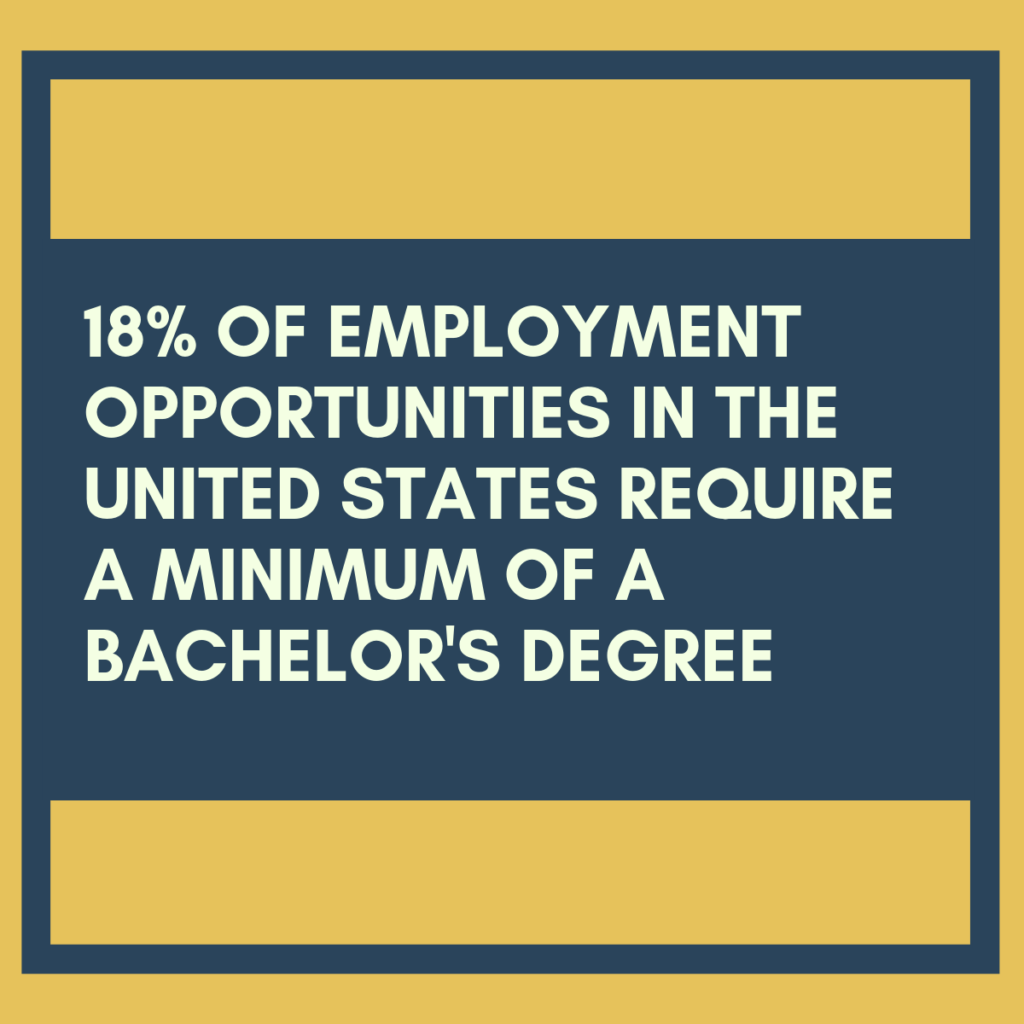
Do you need a Bachelor’s degree to apply to Grad School?
Yes, students who want to apply to an accredited master or doctoral degree programs need to have completed their bachelor’s degree. While many bachelor degrees are suggested for particular grad school degrees, any bachelor’s degree will allow you to apply. For example, if you’re looking to earn a Master’s of Business Administration (MBA) degree, you should have a bachelor’s in a major such as finance, accounting, or business. However, if you majored in a different subject area, then gained employment at a business, you will be a good candidate for an MBA degree program. Some schools offer bachelor’s/master’s combined degree programs that streamline students from their bachelor’s degree into an associated graduate degree at the same school. Common combined bachelor/master degree programs include:
- B.S. in Information Technology to MS in Information Assurance and Cybersecurity
- B.S. in Nursing to Masters in Nursing (BSN-MSN)
- B.S. in Business to Masters of Business Administration (BSB-MBA)
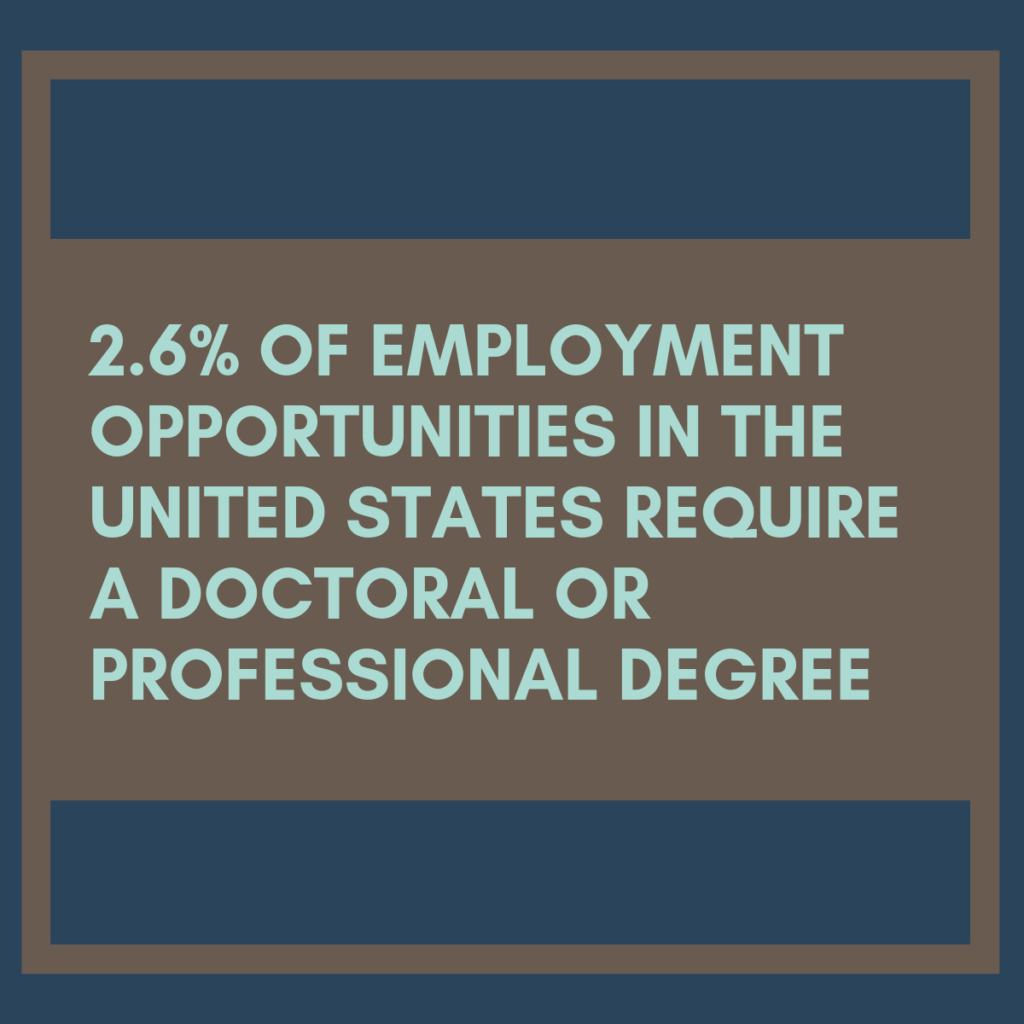
For Further Reading:
